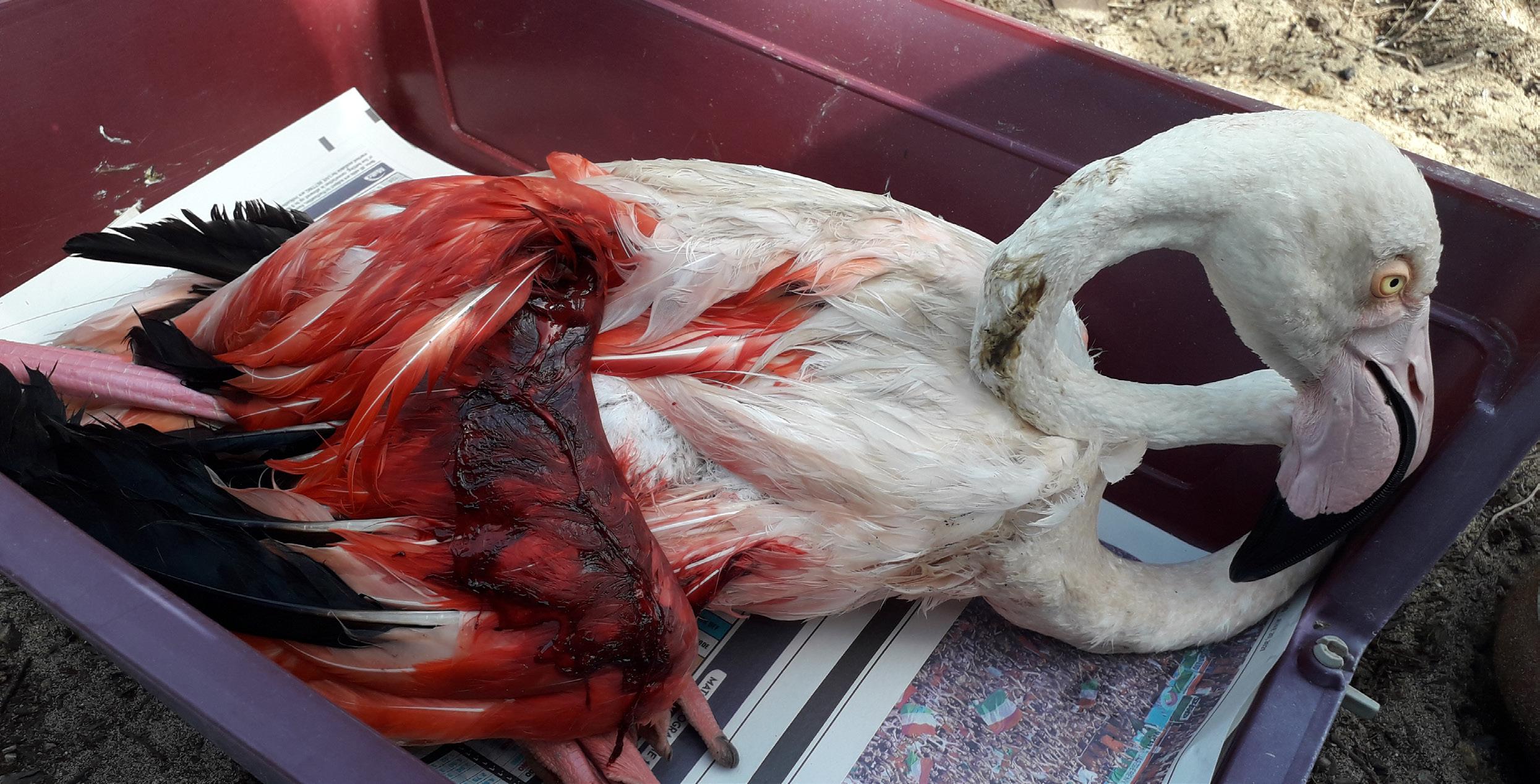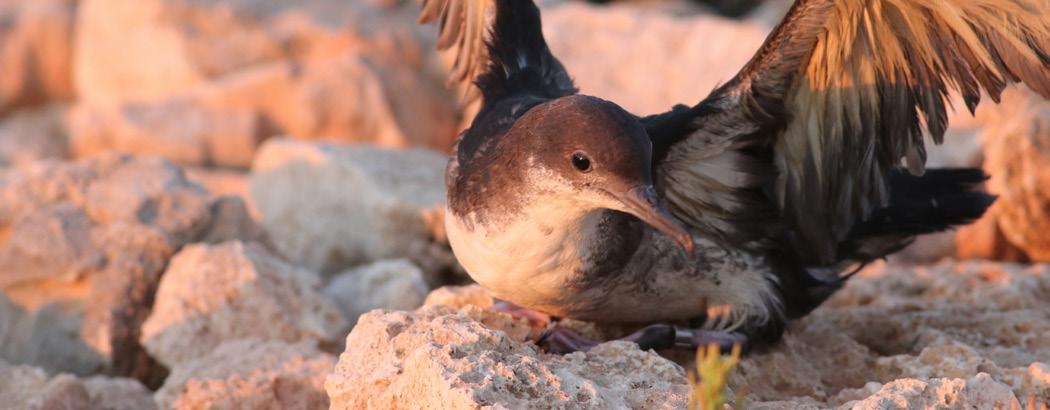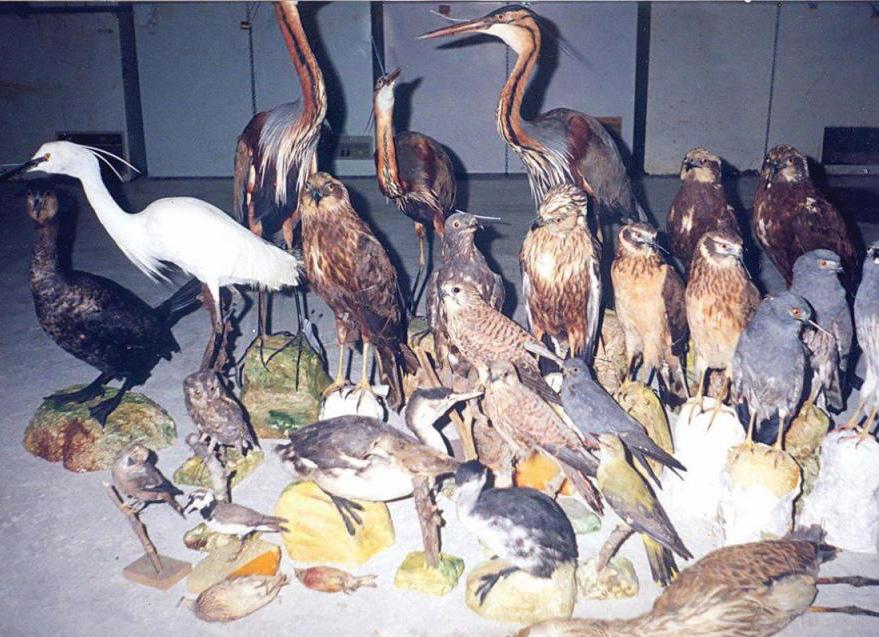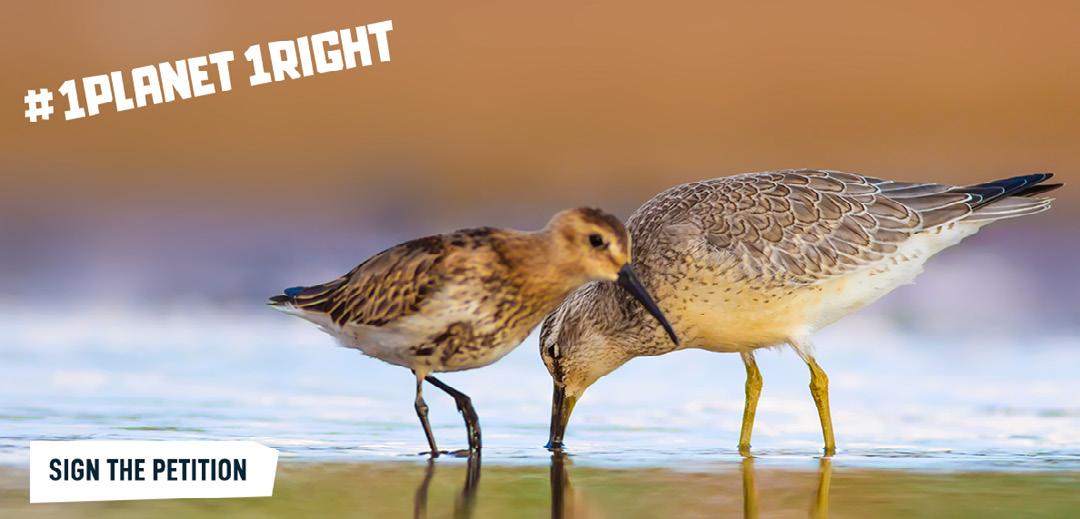
5 minute read
News
Shot Flamingo found off the coast of Gozo
Greater Flamingo shot as season opens
Advertisement
Within 24 hours of the opening of the autumn hunting season on 1 September, at least two shot protected birds – a Black-crowned Night-heron in Ħad-Dingli and a Eurasian Collared-dove in Ħ’Attard – were recovered. The following day a fisherman rescued a badly injured Greater Flamingo off the coast of Gozo, which however died shortly after. This made it the third known illegal casualty since the start of the season. The government vet confirmed all three birds as shot. The autumn hunting season runs for five months (1 Sep–31 Jan) and hunting is permitted for 40 species on land and 12 species at sea. Of these, the European Turtle-dove can be hunted from 1–30 September, and hunting at sea starts on 1 October.
PM ignores open letter

Just before the start of the autumn hunting season BirdLife Malta sent an open letter to Prime Minister Robert Abela following the massacre of two flocks of Black Kites that reached Malta on 22 and 23 August, first in Malta and then in Gozo. With enforcement practically non-existent, BirdLife Malta demanded the delay of the hunting season until 15 October to safeguard the migration of protected species like raptors and herons. We also requested support by law enforcement units present in the countryside to monitor hunting activity. We received no reply to the open letter and the season opened as planned, permitting the hunting of 500 European Turtle-doves, against recommendations from an expert EU task force. In a statement prior to the start of the season entitled PM has lost the plot on hunting or simply doesn’t care, BirdLife Malta revealed how the Government’s decision to forge ahead with the season followed direct meetings between the hunting federation, the Wild Birds Regulation Unit and the Ministry for Gozo, shunning the ORNIS Committee.
Benjamin Grech
Injured Black Kite rescued from San Blas Bay in Gozo
Grounded Yelkouans rescued
Aron Tanti
Yelkouan Shearwater being released back to sea

At the start of summer we launched our annual public appeal for help in rescuing grounded Yelkouan Shearwaters. Over two long months, Yelkouan chicks are raised in dark seacliff burrows. On fledging, the young birds leave their burrow and take their maiden flight. They usually head out to sea but unfortunately fledglings are often drawn to artificial coastal lights. The birds fly around these lights to the point of exhaustion or collide with structures. Once grounded, the birds risk being killed by cats or dogs, hit by vehicles or succumb to dehydration and starvation. In such conditions, these tired and sometimes injured birds are unable to make their way back to sea without human help. This year’s campaign was a great success. Thanks to the public we rescued and released no less than 13 stranded seabirds back to sea.

Simar is already half hidden by development along its north border

BirdLife Malta has formally objected to a proposed development located less than 20m from our Simar Nature Reserve. The development is inside an area designated as a bird sanctuary, and borders a Natura 2000 site and Special Protection Area, which will impact breeding birds but also migratory species seeking refuge at Simar. Not only will material flowing out of the construction site risk contaminating the reserve hydrology, but the high-rise building will permanently diminish the aesthetic, recreational and educational value of Simar to the visitors who visit the reserve for a nature experience. We have called on the Planning Authority to revise the building policies in the area, and requested the developer to downsize the planned height to respect the natural and visual value of the area.
Healthy environment a human right

BirdLife International has worked hard with supporters and experts to get the UN to discuss the human right to a healthy planet through the #1Planet1Right campaign. On 28 July, with 161 votes for, 0 against, and 8 abstentions, the UN General Assembly adopted the historic Resolution recognising the right to a clean, healthy and sustainable environment as a human right.
EU nature restoration law
On 22 June, the European Commission published its proposal for an EU Nature Restoration Law, which will be the first law in the world to set legally binding targets to restore nature. The proposed law includes the overarching objective for area-based restoration of 20% of EU territory by 2030; time-bound restoration obligations for natural habitats, including terrestrial, coastal, freshwater and marine ecosystems; results-based targets for restoration of agricultural and forest ecosystems; and non-deterioration obligations to ensure that restored sites benefit biodiversity and the climate in the long-term. EU Member States will have to draw up national restoration plans that clearly indicate what to restore, where and how to finance it.
A haul of stuffed protected birds (file photo)
Mario Ellul, a taxidermist and hunting tour organiser linked to an international bird poaching racket, was recently fined €6,000 fine and slapped with a 2yr taxidermy licence suspension, after over 700 carcasses of protected bird species were found at his premises. While laudable, the sentence is a tiny dent in a lucrative business through which Maltese hunters are systematically destroying the avifauna of countries like Egypt and Sudan. Maltese ‘entrepreneurs’ organise these hunting expeditions to target protected species, and the service also includes the smuggling and stuffing of the carcasses! It’s a well-oiled one-stop-shop machine that makes the organisers rich and feeds the insatiable appetite for more stuffed exotic birds in Maltese hunters’ private collections. This is all made possible because the Wild Bird Regulations Unit does little to control the racket. It is estimated that over 500,000 stuffed birds were in private collections prior to the transfers being legitimised. (More wildlife crime court sentences on page 2).
BirdLife turns 100!
The historic BirdLife100 World Congress brought together conservationists to work together and bring nature back from the brink. Held in Cambridge and London, the Congress launched an ambitious 10-year global strategy to address the nature and climate crises threatening our existence. At least a million species are at risk of extinction, climate change is causing unprecedented natural disasters and the pressures we’re putting on our planet are unsustainable. For this occasion, BirdLife Malta recruited two Young Leaders for nature protection to join the World Congress and training held on 11–16 September 2022.









